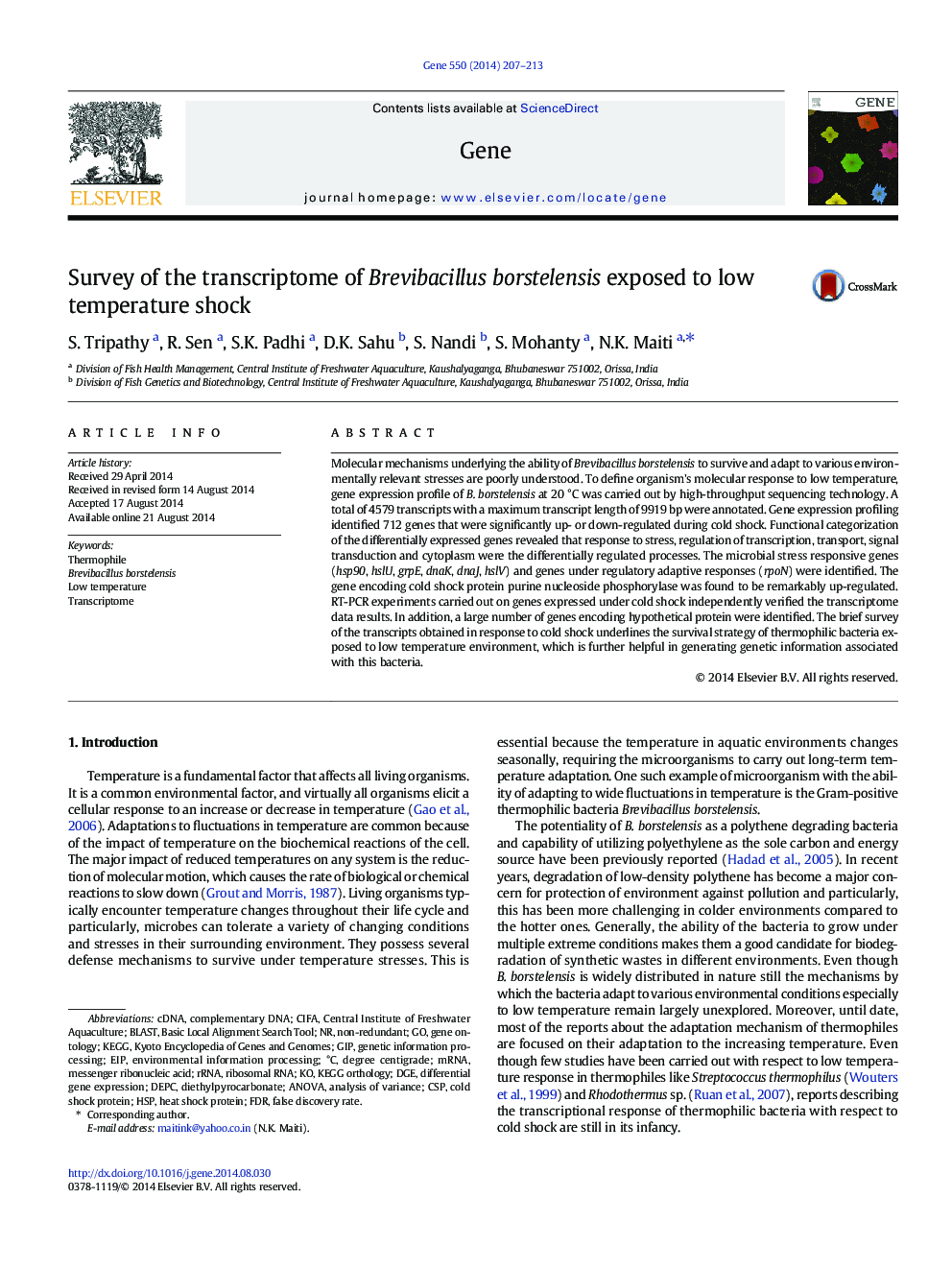| Article ID | Journal | Published Year | Pages | File Type |
|---|---|---|---|---|
| 2816086 | Gene | 2014 | 7 Pages |
•‘Amino acid metabolism and transport’ represented the highest COG category.•Most of the genes were mapped to ‘biological processes’ as per GO classification.•Majority of the DEGs mapped to KEGG pathways were under ‘amino acid metabolism’.•Purine nucleoside phosphorylase, cold-shock protein, and RNA helicase were induced.•37% of the total transcripts were hypothetical proteins.
Molecular mechanisms underlying the ability of Brevibacillus borstelensis to survive and adapt to various environmentally relevant stresses are poorly understood. To define organism's molecular response to low temperature, gene expression profile of B. borstelensis at 20 °C was carried out by high-throughput sequencing technology. A total of 4579 transcripts with a maximum transcript length of 9919 bp were annotated. Gene expression profiling identified 712 genes that were significantly up- or down-regulated during cold shock. Functional categorization of the differentially expressed genes revealed that response to stress, regulation of transcription, transport, signal transduction and cytoplasm were the differentially regulated processes. The microbial stress responsive genes (hsp90, hslU, grpE, dnaK, dnaJ, hslV) and genes under regulatory adaptive responses (rpoN) were identified. The gene encoding cold shock protein purine nucleoside phosphorylase was found to be remarkably up-regulated. RT-PCR experiments carried out on genes expressed under cold shock independently verified the transcriptome data results. In addition, a large number of genes encoding hypothetical protein were identified. The brief survey of the transcripts obtained in response to cold shock underlines the survival strategy of thermophilic bacteria exposed to low temperature environment, which is further helpful in generating genetic information associated with this bacteria.
